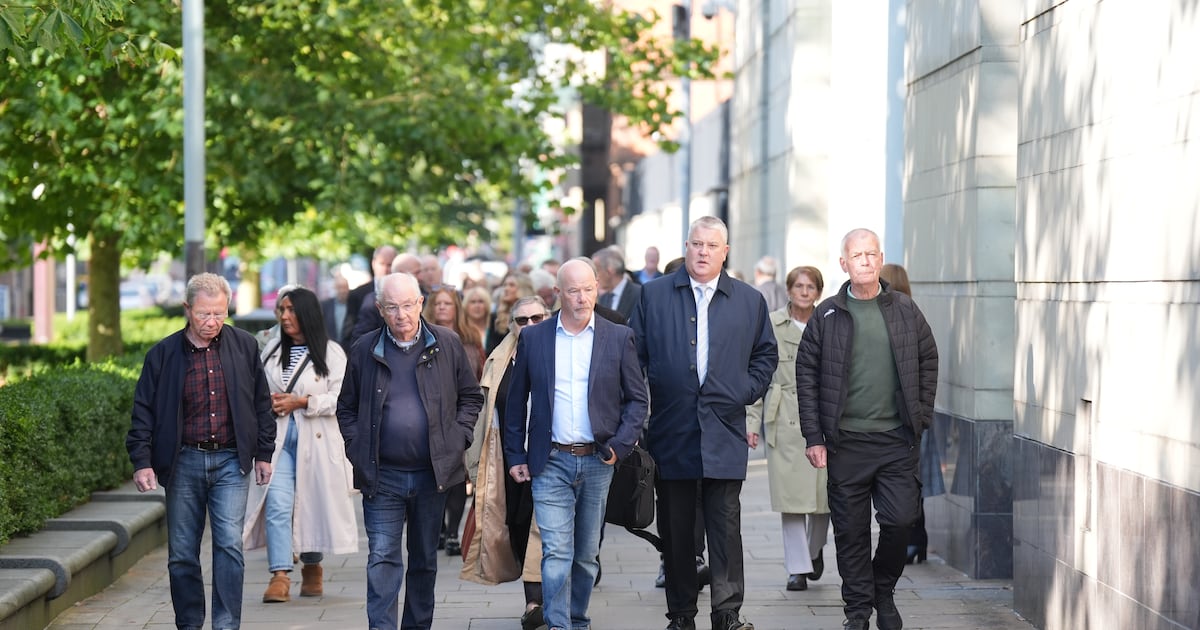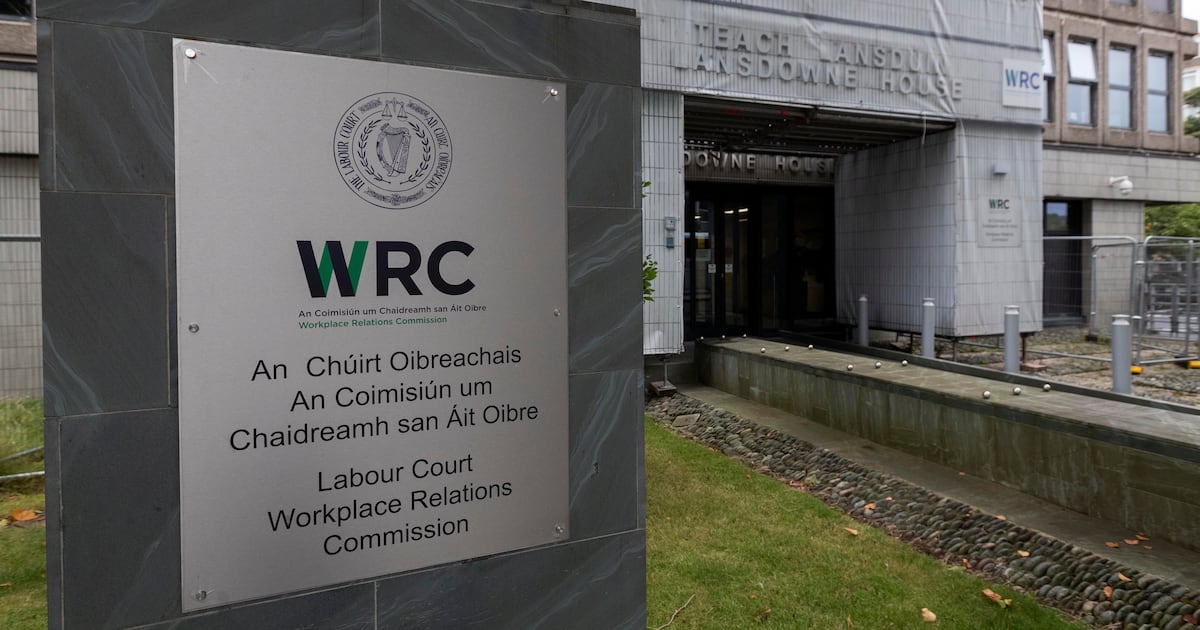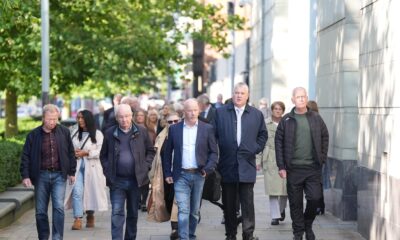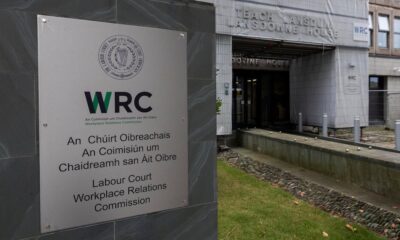Other News
Belarus proposes new nuclear plant to supply energy to Russian-occupied Ukraine
Read more on post.

ADVERTISEMENT
Belarus unveiled a proposal on Friday to build a second nuclear power plant in the country capable of supplying energy to the regions of Ukraine occupied by Russian forces.
President Aliaksandr Lukashenka raised the plans during a meeting at the Kremlin with President Vladimir Putin, who appeared to publicly support the idea.
Lukashenka said the plant could be used if needed to supply areas controlled by Russia in the Kherson, Zaporizhzhia, Luhansk and Donetsk regions.
Russia announced the annexation of the four regions in September 2022, referring to them as new territories despite only occupying part of them.
That announcement has not been recognised by any of the international community, with the exception of North Korea, and under Ukrainian law they are referred to as temporarily occupied territories.
Belarus opened its first nuclear power plant in Astravets in 2020 amid protests and concern in neighbouring Lithuania, where there was opposition to the plant’s location, just 40 kilometres away from the capital Vilnius.
The Astravets plant was built by the Russian state atomic energy corporation, Rosatom, with a $10 billion (€8.5 billion) loan provided by Moscow.
Putin did not specify at Friday’s meeting whether Russia would provide financial backing for the second plant proposed by Lukashenka.
Sviatlana Tsikhanouskaya, the exiled leader of Belarus’ opposition, slammed the proposal, saying it “all of Europe at risk.”
“By proposing that Putin build a second nuclear power plant in Belarus to supply electricity to occupied territories in Ukraine, Lukashenka once again proves he is complicit in Russian aggression. He is trading Belarusian sovereignty for power and profits from war crimes,” she said.
Lukashenko, who has ruled Belarus for over three decades, is a close ally of the Kremlin.
He allowed Russia to use Belarusian territory as a staging ground for Moscow’s full-scale invasion of Ukraine in February 2022 and later authorised Russian tactical nuclear missiles to be deployed in his country.
Additional sources • AP
Other News
24% of Irish parents dress their twins in matching outfits, CSO says
Other News
Bloody Sunday: Soldier F trial set to resume with witness evidence next week

Read more on post.
The trial of a former paratrooper accused of the murder of two men on Bloody Sunday in Derry in 1972 is set to resume next week.
The non-jury trial at Belfast Crown Court will hear evidence from three men who survived the shootings as well as civilian witnesses and former soldiers.
It comes after Judge Patrick Lynch on Wednesday ruled that key hearsay evidence can be admitted as evidence in his trial.
He granted an application by the prosecution to admit a number of statements made by other soldiers on the ground during the shootings on January 30th, 1972, which the defence had argued were not reliable.
Members of the Parachute Regiment shot dead 13 civilians in Derry on Bloody Sunday after a civil rights march.
Soldier F, who cannot be identified, is accused of murdering James Wray and William McKinney.
He is also charged with five attempted murders during the incident in the city’s Bogside area, namely of Joseph Friel, Michael Quinn, Joe Mahon, Patrick O’Donnell and a person unknown.
He has pleaded not guilty to the seven counts.
He sits in the courtroom behind a curtain during each day of the trial.
The court sat for a brief hearing on Friday, and heard that the trial will resume next Wednesday morning, and is expected to last between two to three weeks.
[ Bloody Sunday: Judge rules evidence against soldier charged is admissableOpens in new window ]
There was some discussion around witnesses being subjected to cross-examination, with Mark Mulholland KC, for the defence, arguing that they were “quite exhaustively questioned at the lower court”.
“After the various years of media, Saville [inquiry] sittings, being at the hearings, what has occurred even in the last few years of these proceedings, there is a risk of innocent contamination,” he said.
Judge Lynch said he thinks cross-examination should take “more or less its normal form”.
The trial will sit again next Wednesday.
Other News
Disability centre seeks to have WRC case into allegations of penalisation anonymised

Read more on post.
A disability centre has asked an employment tribunal to impose reporting restrictions due to “very sensitive issues” after being accused of penalising a worker for raising safety complaints.
The Workplace Relations Commission (WRC) noted on Friday that a previous “agreement” on a series of penalisation and discrimination claims brought by a former employee of the Delta Centre CLG in Carlow “didn’t come to fruition”.
Statutory complaints brought by the worker, Sandra Browne, under the Protected Disclosures Act 2014, the Safety, Health and Welfare at Work Act 2005, the Industrial Relations (Miscellaneous Provisions) Act 2004 and the Employment Equality Act 1998 against the disability services organisation are now set to proceed to a full hearing later this year.
Adjudication officer Brian Dolan noted that Ms Browne was no longer represented by the legal team which had appeared on her behalf at a previous hearing.
“The former representative for the complainant and the respondent said they had reached an agreement; that didn’t come to fruition,” he said.
“The complainant had three weeks or a month or so to say the [withdrawal of] complaint had been agreed – the complainant said she wished to continue on,” he said.
“I draw no inference, I make no comment, other than that the matter is proceeding to a hearing,” he said. He noted that the Delta Centre’s legal filings ran to “1,000 pages” and that there was a “large booklet” of material from the complainant before him as well.
The tribunal heard Ms Browne was dismissed from her employment on April 29th, 2024. Prior to her dismissal, Mr Dolan noted, she had referred complaints of disability discrimination, as well as penalisation in connection with a health and safety matter and penalisation in connection with “trade union membership”.
Counsel for the employer, Úna Clifford, said her belief was that the WRC would need three days to hear the matter. She said the respondent wished to present the tribunal with the details of a number of investigations that it carried out and that she had “a number of witnesses” to call.
“I’d appreciate as much time as possible,” Ms Browne told Mr Dolan. “As I’m self-represented, I’m not here to start creating a narrative, but to put forward as much as possible, and let you draw your own conclusions,” she said.
At the outset of Friday’s hearing Ms Clifford, for the employer, said: “A number of allegations made by Ms Browne involve some very sensitive issues regarding service users.”
“Some of what might be reported would cause significant upset to the service users’ families. We would contend there’s a very significant issue at play here [and] would politely be requesting anonymisation,” she said.
Mr Dolan said: “I’ll reserve my position.” He said he would consider the matter in advance of the hearing. “Today, we’re not in camera. It’s not anonymous for the time being. This morning’s hearing is in public.”
After this, a member of the centre’s management spoke up, pointed out that there were journalists present at the hearing and asked that the members of the press be “identified”.
Mr Dolan told him the WRC’s hearings were effectively “open court” and that journalists regularly attended.
The case has been adjourned pending the arrangement of hearing dates at the WRC’s offices in Carlow.
-
Politics3 days ago
European Parliament snubs Orbán with vote to shield Italian MEP from Hungarian arrest
-
Culture3 weeks ago
Life, loss, fame & family – the IFI Documentary Festival in focus
-
Health4 days ago
EU renews support for WHO’s Universal Health Coverage Partnership
-
Environment7 days ago
Key oceans treaty crosses threshold to come into force
-
Culture2 months ago
Fatal, flashy and indecent – the movies of Adrian Lyne revisited
-
Culture3 days ago
Twilight at 20: the many afterlives of Stephenie Meyer’s vampires
-
Culture1 week ago
Farewell, Sundance – how Robert Redford changed cinema forever
-
Culture3 weeks ago
What is KPop Demon Hunters, and why is everyone talking about it?

















































